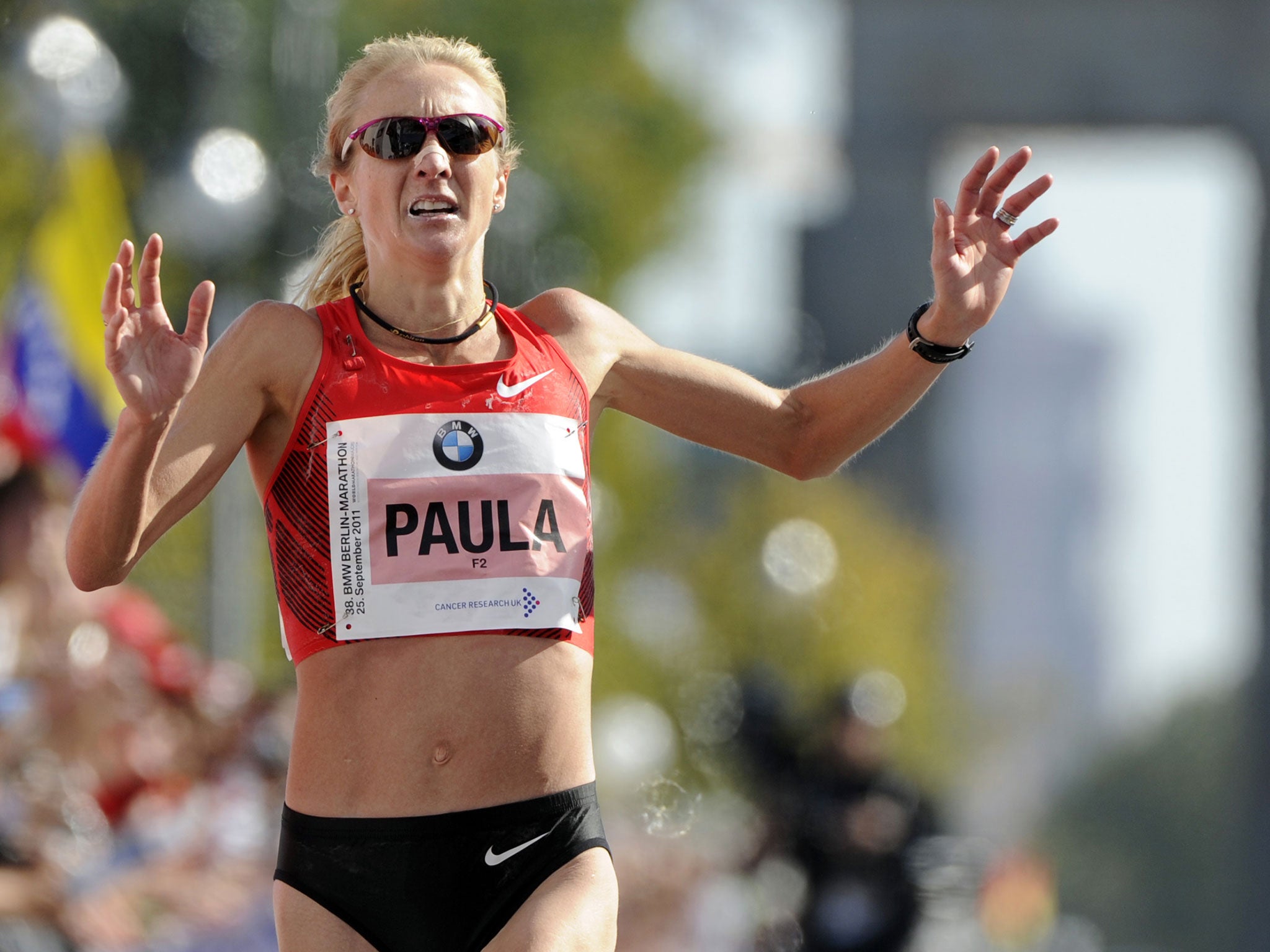Paula Radcliffe rejects idea of resetting all athletics world records despite doping controversies
Radcliffe was consulted by the UKA when drawing up the reform programme

Paula Radcliffe has criticised UK Athletics for proposals to rip up athletics’ world records and start from scratch as part of wide-ranging plans to clean up the much-maligned sport.
UKA published 14 recommendations under the banner “A Manifesto for Clean Athletics” yesterday, which involved wiping out the record books, including Radcliffe’s marathon world mark set in London in 2003, and calling for lifetime bans for athletes caught cheating.
While backing the proposals in general, Radcliffe said of resetting all the existing records: “I think the idea is well intentioned but has not been thought through properly. I think scrapping all world records is not something that could ever happen.
“I’m all for records being erased of proven cheats, but doing this across the board would simply be punishing the innocent and clean athletes.”
Radcliffe would be one of three Britons to lose their records should UKA’s recommendations be ratified, along with triple jump world champion Jonathan Edwards and Colin Jackson, who still holds the indoor 60 metre hurdles world record.
She played a role in putting together the manifesto, being interviewed for an hour and a half by a UKA official for her views on how to clean up the sport. Her suggestion of athletes failing drug tests having their entire set of results erased did not make the list of recommendations.
The UKA proposals also include a global public register of all drugs tests, that the supply and procurement of performance-enhancing drugs be criminalised and for national federations to pay compensation to athletes denied by drug cheats in what it called “the new clean athletics era”.
British sportsmen and women previously found guilty of doping offences had been banned by the British Olympic Association from ever competing in a British vest at the Olympics, but that was overturned by the Court of Arbitration for Sport in the lead-up to London 2012.
The World Anti-Doping Agency (Wada) is currently opposed to lifetime bans for athletes and its current code is not due to be revised until 2021. Any proposal to push for lifetime suspensions is likely to fall on deaf ears.
However, the UKA chairman, Ed Warner, said: “This may be seen by many as a mission impossible, but we have to go for what’s perceived as the impossible.
“What we’re saying is let’s go up from four-year bans for the most serious offences and what we’re saying is we don’t want to pick drug cheats for the British team. I know the BOA couldn’t make it stick, but we need to at least give it a go.”
Warner, who discussed the proposals in question with the International Association of Athletics Federations president, Sebastian Coe, yesterday, defended the proposal to eradicate Radcliffe’s long-standing record.
He said: “This is about, for example, the sprint events and the records of Florence Griffith Joyner in the 100m and 200m.
“If, say, Dafne Schippers gets close to those, then people say she must be a cheat and that’s not right.
“So this is not about being partisan with three British athletes in those record books, this is about what’s right for the future of our sport.”
Warner added that Coe “is in favour” of picking off those records that are clearly wrong and said: “If he can do that, then wonderful and let’s get on with it.”
The IAAF faces another week of potentially devastating headlines with the publication of the Wada independent commission’s second report in Munich on Thursday into the doping scandal to have engulfed athletics.
On Friday, the IAAF sent a 30-page response to the independent commission’s first report, which uncovered what it called state-sponsored doping in Russia and which saw the IAAF accused of “systemic failures”.
The governing body reacted angrily as it made its response public yesterday. In conclusion, it said: “While the IAAF certainly cannot be and is not complacent, and understands that more always can and should be done, with the greatest respect it does not accept the suggestion in the IC report that there are ‘systemic fails within the IAAF… that prevent or diminish the possibility of an effective anti-doping programme’.”
It also denied that corruption was widespread within the organisation, insisting in its reply that “only a very small number of individuals formerly associated with the IAAF are believed to have been involved in the alleged corruption of these four cases”.
Join our commenting forum
Join thought-provoking conversations, follow other Independent readers and see their replies
Comments
Bookmark popover
Removed from bookmarks